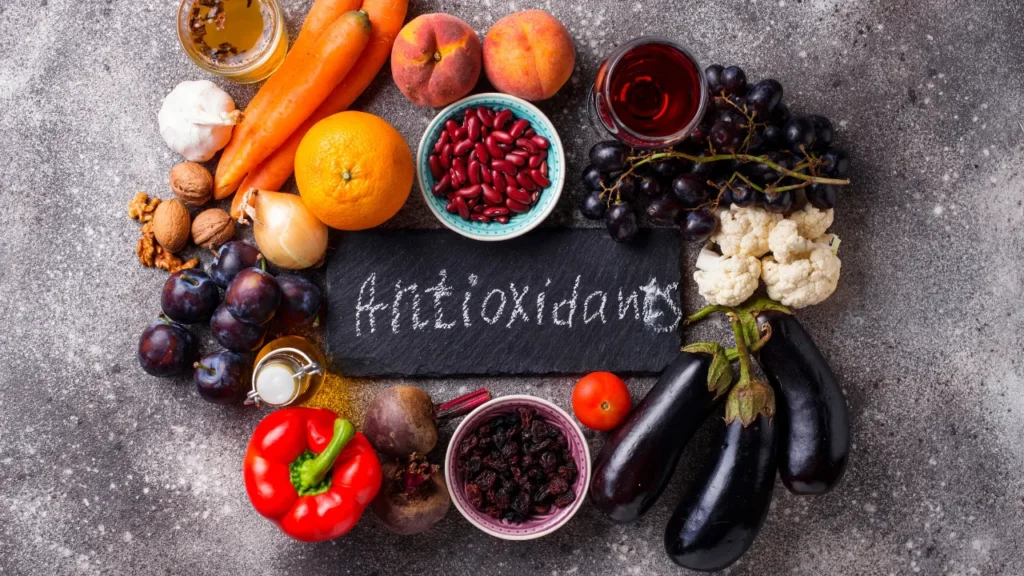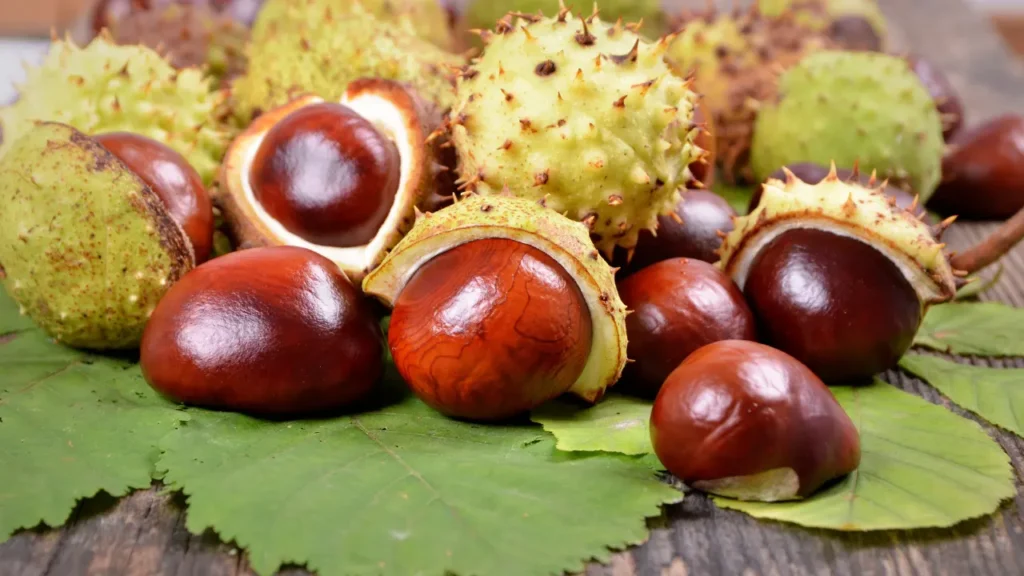Eastern North America is home to the American chestnut (Castanea dentata), a species of tree in the beech family. The American chestnut, once a prominent species, saw a population decrease in the early 20th century after being decimated by a fungal disease. The American chestnut is a well-liked nut in modern times, and an extract of it is sold as a supplement. This article will examine the characteristics of the American chestnut, as well as its health advantages, ideal dosage, negative effects, possible drug interactions, and other pertinent details on its most responsible applications.
You May Also Like:
Enhance Mental Agility: 3 Big Benefits of Omega-3s for Cognitive Function
Battle of the Brain Boosters: Brain MD Omega 3 Power vs. Kori Krill Oil Mind & Body
AMERICAN CHESTNUT: Benefits, Dosage, Side Effects, Drug Interactions, and Other Important Information is an original (NootropicsPlanet) article.
Nature of American Chestnut
The deciduous American chestnut tree can reach heights over 100 feet. It produces tall, prickly burrs with three to seven nuts inside that are dark green with serrated edges. The sweet nuts can be consumed fresh, roasted, or cooked. Carbohydrates, fiber, and minerals including magnesium, potassium, and zinc are all abundant in American chestnuts.
Health Benefits of American Chestnut
There are various health advantages of American chestnut, including:
Anti-inflammatory: Flavonoids included in American chestnut extract have anti-inflammatory properties. These characteristics make it advantageous for lowering bodily inflammation.
Antioxidant: American chestnut extract also has antioxidants that can defend the body from free radicals and protect the body from oxidative stress and cell damage.
Health of the digestive system: American chestnut includes fiber, which is good for the digestive system. It promotes a healthy gut flora, regulates bowel motions, prevents constipation, and prevents diarrhea.
Support for the immune system: Vitamin C, which is crucial for the immune system, is included in American chestnut extract. It aids in the body’s defense against illnesses and infections.
Cardiovascular health: It has been demonstrated that American chestnut extract increases blood flow, lowers cholesterol, and guards against the formation of arterial plaque. This can lower the chance of developing cardiovascular disease.

Chemistry of American Chestnut
American chestnut extract contains a variety of phytochemicals, such as tannins, flavonoids, and phenolic acids. Tannins can be found abundantly in plant-based food which have been shown to have anti-inflammatory and antioxidant properties. Flavonoids are a different class of chemicals that offer a number of health benefits, including antioxidant, anti-inflammatory, and neuroprotective effects. Phenolic acids, which have been shown to have antioxidant and anti-inflammatory properties, are also another component of many plant diets.
One of the unique phytochemicals found in American chestnut is ellagic acid. A polyphenolic molecule called ellagic acid has anti-inflammatory and anticancer properties. Additionally, research has shown that ellagic acid aids in the body’s defense against inflammation.
Aside from plant chemicals, you can also get minerals like potassium, magnesium, calcium, iron, and others from consuming the American chestnut. Minerals play a pivotal role in our body. For several physiological processes, including neuron and muscle function, potassium is needed. Magnesium is essential for maintaining healthy bones, neuron function, and energy production. Both iron and calcium are required for the growth of sound red blood cells as well as solid bones and teeth, respectively.
Physiological Mechanism of Action of American Chestnut on the Body and Brain
The pathway in which the American chestnut extract affects the body has yet to be properly illustrated. However, there are several processes that can help explain how this supplement supports the health of the body.
The antioxidant and anti-inflammatory properties of American chestnut extract are among its main mechanisms of action. By preventing the generation of pro-inflammatory cytokines, the flavonoids in American chestnut extract have been found to reduce inflammation in the body. This can aid in lowering the risk of a number of illnesses, including cancer, cardiovascular disease, and neurological diseases.
American chestnut extract has also been demonstrated to lower blood sugar levels and increase insulin sensitivity. For those who already have diabetes or are at risk of developing it, this supplement may be helpful.

Optimal Dosage of American Chestnut
The ideal amount of American chestnut extract to take depends on numerous variables, including age, weight, and overall health. American chestnut extract doesn’t have a suggested daily intake, however, studies have employed doses of 100 to 500 mg daily. It is advised to begin with a lesser dose and then increase it gradually as necessary. Before taking any supplements, it’s crucial to read the manufacturer’s recommendations and speak with a doctor.
Side Effects of American Chestnut
When consumed in the recommended dosages, American chestnut extract is typically safe. However, some individuals may have negative effects like:
Allergic reactions: The American chestnut may cause allergic responses in certain people, including breathing difficulties, swelling, and itching.
Issues with the digestive system: American chestnut extract may induce bloating, gas, and diarrhea.
Medication interactions: American chestnut extract may interact with diabetic medicines and blood thinners. A healthcare professional should be consulted before taking any supplements.
Potential Substance Interactions with American Chestnut
The following compounds may interact with American chestnut extract:
Consumption of alcoholic drinks: American chestnut extract may intensify the effects of alcohol and make you feel sleepy from drinking.
Medication interactions: American chestnut extract may impact blood thinners and diabetes medications, among other drugs.
Supplements: American chestnut extract could interact with vitamins E and ginkgo biloba as well as other supplements.
Thus, before ingesting any vitamins or pharmaceuticals, it is crucial to speak with a healthcare professional.

Best Responsible Use of American Chestnut Extract
To guarantee safe and responsible usage of American chestnut extract, it is crucial to adhere to suggested dosages and instructions. Here are some pointers for using American chestnut extract responsibly:
- Before consuming American chestnut extract, especially if you use medication or have a medical condition, talk to your doctor.
- Follow the dosage instructions on the supplement’s package, and unless your doctor instructs you otherwise, don’t go above them.
- American chestnut extract should be taken with food to improve absorption and reduce the possibility of gastrointestinal upset.
- To maintain its potency, store American chestnut extract in a cool, dry location away from light and moisture.
- Use caution when substituting American chestnut extract for a healthcare professional’s advice or medical care.
- Use American chestnut extract as a component of a balanced diet full of fruits, vegetables, whole grains, and lean protein sources, as well as frequent exercise.
- If you notice any negative effects, discontinue using American chestnut extract. Be careful of any side effects or interactions with drugs or other substances.
Overall, when used sensibly and in tandem with a healthy lifestyle, American chestnut extract can be a valuable nutritional supplement. To ensure safe and efficient use, it is crucial to seek advice from a healthcare professional before taking any supplements and to adhere to suggested dosages and instructions.
AMERICAN CHESTNUT:
Conclusion
In conclusion, the American chestnut stands as a historically significant tree in North America. This magnificent tree can yield fruits with a lot of health benefits when used as a supplement, which include anti-inflammatory properties, antioxidant properties, and improved digestive health. American chestnut contains a variety of phytochemicals such as tannins, ellagic acid, flavonoids, and phenolic acids. These phytochemicals not only improve the immune system but also prevent chronic illnesses from developing by lowering the body’s inflammation.
However, you must make sure to consult your doctor before beginning your supplementation routine to ensure its safety and efficacy. This is especially important if you are taking any existing prescriptions because the American Chestnut supplement may react negatively with the medication you are taking. If you consume this supplement according to the guidance and recommended dosage, you will be able to enjoy improved health and wellness.

References:
- Comparison Of the Transcriptomes of American Chestnut (Castanea Dentata) and Chinese Chestnut (Castanea Mollissima) In Response to The Chestnut Blight Infection. Retrieved from: https://pubmed.ncbi.nlm.nih.gov/19426529/
- Cyto-Molecular Characterization Of rDNA And Chromatin Composition in the NOR-Associated Satellite in Chestnut (Castanea spp.). Retrieved from: https://pubmed.ncbi.nlm.nih.gov/38225361/
- Exploration of a Rare Population of Chinese Chestnut in North America: Stand Dynamics, Health and Genetic Relationships. Retrieved from: https://pubmed.ncbi.nlm.nih.gov/25336337/
Important Note: The information contained in this article is for general informational purposes only, and should not be construed as health or medical advice, nor is it intended to diagnose, prevent, treat, or cure any disease or health condition. Before embarking on any diet, fitness regimen, or program of nutritional supplementation, it is advisable to consult your healthcare professional in order to determine its safety and probable efficacy in terms of your individual state of health.
Regarding Nutritional Supplements Or Other Non-Prescription Health Products: If any nutritional supplements or other non-prescription health products are mentioned in the foregoing article, any claims or statements made about them have not been evaluated by the U.S. Food and Drug Administration, and such nutritional supplements or other health products are not intended to diagnose, treat, cure, or prevent any disease.


